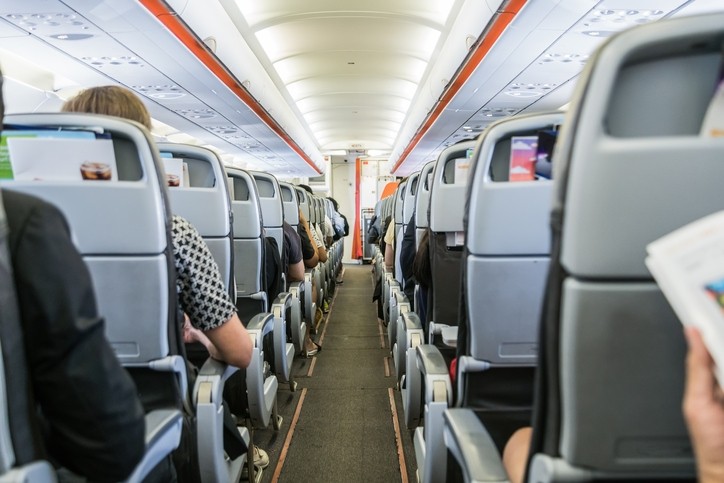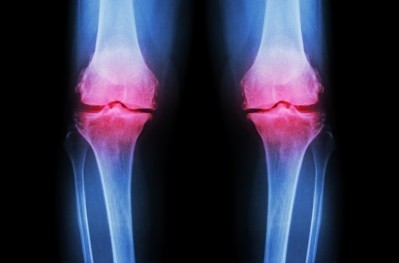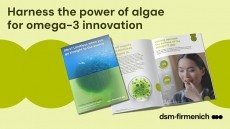Cramped in coach? Study says pine bark extract may ease post-flight symptoms such as swelling, jet lag

This isn’t the first time Pycnogenol was analyzed for its potential benefits for travelers. A search on PubMed returned three other positive published studies, all conducted by researchers from D’Annunzio University and L’Aquila University in Italy, linking the extract to better conditions post-travel, such as reduced venous thrombosis and controlled jet-lag.
These results, published this month in the journal Minerva Cardioangiologica, can be translated to other situations beyond traveling, said Sébastien Bornet, VP of global sales and marketing at Horphag Research, makers of Pycnogenol.
“Sitting is the new smoking,” he told NutraIngredients-USA at the recent SupplySide East Show in Secaucus, NJ. “It’s not only traveling by air—you can sit in the car five hours, or you can sit in the office for eight hours, so it’s all about sitting.”
But the reason why Horphag Research is focusing on air travel is because, unlike these other examples, flying is when one notices the negative effects of sitting for too long the most, after being confined for hours at a time, cramped in coach specifically.
“The results were quite amazing in the sense that you can see the difference in the circumference of the leg and ankles,” Bornet said. “It’s a very clear, easy way to notice the difference, and an easy way to measure the benefits of Pycnogenol for travel health.”
Currently, there is one travel-positioned product containing Pycnogenol, Bornet added. It’s called 1Above Travel, made by Auckland-based 1Above NZ Limited and available worldwide.
Study design
The study population included participants at different levels of risk for edema and deep vein thrombosis. They also traveled more frequently than the average person, completing eight-plus hours of flights in economy class twice a week in varying times during the period between January 2016 and January 2017.
Participants were divided into three risk groups (low, moderate, and high), and within those groups, they were further subdivided into another three groups based on personal preference (Pycnogenol group, stockings group, and control group).
All groups also participated in ‘standard management,’ which entails in-flight exercises and hydration. The high-risk group also received aspirin.
Before and after the flights, participants were evaluated with thermography for both limbs and ultrasound scanning for the venous system. These were done within 24 hours before the flight and within 30 hours after the second, return flight.
A secondary outcome measured was jet lag, which was documented by participants’ self reporting.
Supplementation
No placebo was used, and participants’ preferences dictated whether they joined the supplement group or not instead of being randomized.
The period of follow-up was considered variable, “according to the needs and availability of the subjects,” the researchers wrote. Evaluation was based on a registry documenting limb measurements, ultrasound scan results, and self-documented supplementation compliance.
The Pycnogenol supplement dose was 150 mg per day delivered in three capsules per day. Supplementation started three days before the flights and stopped three days after the second flight.
Results and significance
The researchers reported a “significant” reduction of edema (swelling) in the lower legs and ankle circumference for the Pycnogenol group. They also reported a decrease in study participants who reported leg pain after flights.
When it comes to jet lag, the Pycnogenol groups all reported milder jet-lag symptoms compared to the control groups post flight.
“In this new study, Pycnogenol seems to effectively control edema,” the researchers wrote. “There is indication that it may also contribute to control some early thrombotic events, but this requires an evaluation of a larger number of high-risk subjects.”
Source: Minerva Cardioangiologica
Published online ahead of print, DOI: 10.23736/S0026-4725.17.04577-7
“Long-haul flights, edema, and thrombotic events: prevention with stockings and Pycnogenol supplementation (LONFLIT Registry Study)
Authors: Gianni Belcaro, Umberto Cornelli, Mark Dugall, Morio Hosoi, Roberto Cotellese, Beatrice Feragalli















